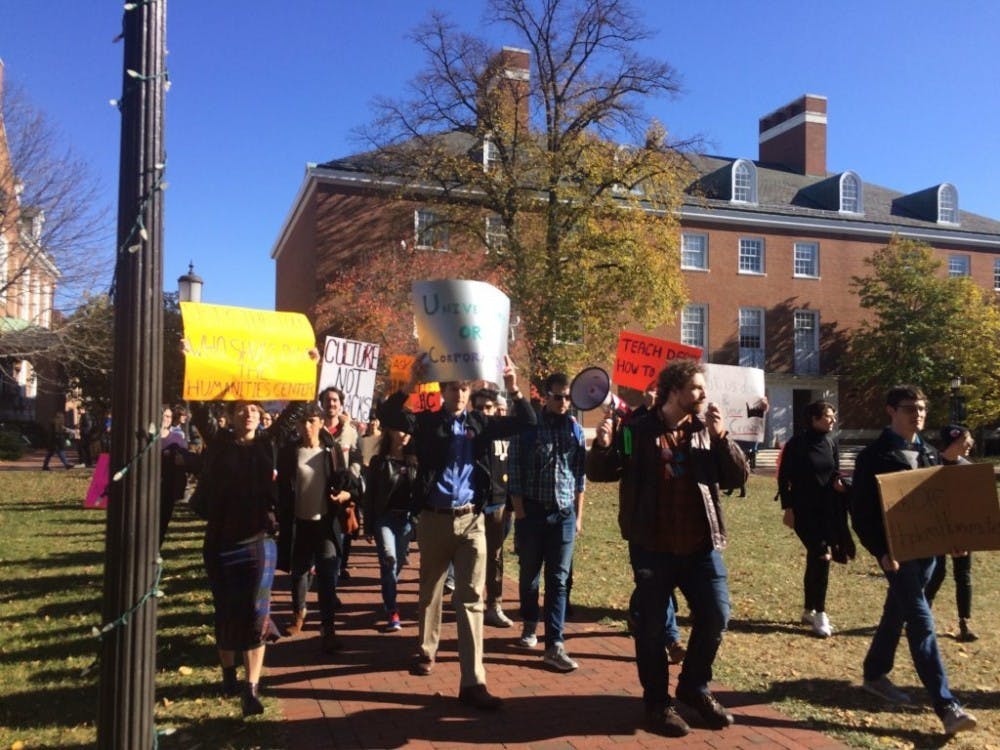The humanities at Hopkins are undervalued. It’s as simple as that. I know it, you know it and University President Ronald J. Daniels knows it.
That’s why last week he sent an institution-wide email encouraging students to take humanities courses, meaning those which may not be part of one’s field of studies.
He recounts overhearing a student on Decker Quad saying that the demands of his major didn’t allow for taking a philosophy class. Daniels adds that he now wishes he had intervened to encourage that student to take the class regardless.
Daniels’ email focuses on one anxiety shared by most humanities students: employability. In an economy increasingly driven by industry and technology, can scholarship in the humanities lead to high-paying or even adequately-paying jobs? According to Daniels, recent studies show that students with humanities degrees thrive in the workplace with low rates of unemployment.
What studies? Now, I admittedly don’t study higher education, but the American Academy of Arts and Sciences reports that as of February, the unemployment rate of terminal bachelors degree holders (TBHs) in the humanities is almost two percentage points higher than that of TBHs who studied health and medical sciences.
The argument that Daniels offers — that employers look for candidates with well-rounded educations that include courses in history or philosophy — reflects an inequitable way of thinking about the humanities in education. In this way of thinking, one or two “impractical” humanities courses can broaden a typical STEM curriculum. But would taking Systems Bioengineering and Electromagnetic Theory broaden my horizons and make me more employable?
The humanities are not courses to take as a fun but impractical break from your MCAT prep. Viewing humanities courses as just a complement to a STEM education overlooks those of us who spend four years, if not many, many more invested wholly in humanitarian studies.
I agree with Daniels on some points. He writes that studying the humanities can cultivate “critical thinking, self-reflection, empathy and tolerance” (say this in RuPaul’s voice and it sounds suspiciously like Charisma, Uniqueness, Nerve and Talent), all of which become useful “as one navigates the challenges” in life. But are one or two courses enough to cultivate these qualities?
I’ve taken a handful of particularly resonant courses. Philosophy of Race and Racism, for example, forever changed the way I think about my own racial identity. But that is one out of almost 30. The STEM student who takes such a resonant course must have incredible luck in getting just the right professor, classmates and readings so as to have that perfect course that humanities students yearn for.
Daniels mentions that our beloved Michael Bloomberg, the mega-billionaire who has committed over $1 billion to Hopkins (a whopping 2.5 percent of his net worth), took a history and a philosophy course during his time here. But I have to ask — does Bloomberg really think back on those two courses? Did he really find that those two courses developed his critical thinking, self-reflection, empathy and tolerance?
So instead of just sending emails, what are some concrete ways that the University could work to affirm the value of the humanities? Let me give you some ideas.
Stop putting the humanities under review. In 2016 the University announced that the Humanities Center would undergo its third review in five years, potentially leading to its closure. The Center was not closed down and has since changed its name to the Department of Comparative Thought and Literature. But does the constant threat of closure foster an environment of healthy scholarship for faculty and students? President Daniels, would you feel valued if students were constantly calling for the potential closure of the Office of the President?
Make printing free for humanities students. This should be a no-brainer for all students, really, but in my Intermediate Fiction class I have to print 15 copies of a 15-page story at a total cost of around $8, about the price of a meal. Every week, three students are giving up a meal to print their assignments. Meanwhile, Physics students can print for free in Bloomberg.
Offer full credit for humanities internships. Why is it that after a summer of working full time in a newspaper, I can only get one credit for my experience, while STEM students can count research for four credits? This system on its face offers an incentive of several thousand dollars to STEM students that has not been extended to the humanities. If we assume that the labor is unpaid, it’s far more affordable for a STEM student to engage in research than for a humanities student to get comparable hands-on experience.
Thank you, President Daniels. As a student in Writing Seminars, I’m wholly reassured by your email reaffirming the value of the humanities. Now what will you do to back it up?
Jacob Took is a junior from Dallas, Texas majoring in Writing Seminars, English and Russian. He is a Managing Editor.

















